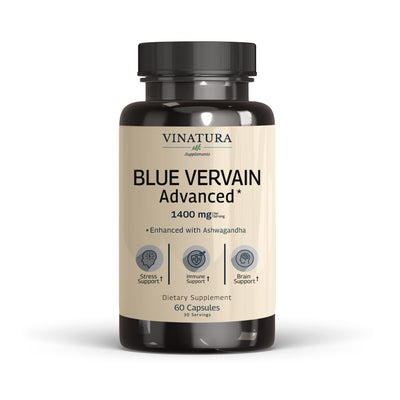
Ashwagandha Vs L Theanine: Which One Should You Choose?
Both Ashwagandha and L Theanine are promising products for those interested in improving mental health through herbs. However, the specific benefits of each for human health have yet to be widely known. This article outlines the characteristics and functions of these two herbs to help you choose the best product for your health!
Before exploring further, please read the disclaimer located at the end of this webpage.
Key Takeaways
- Ashwagandha: A traditional herb known for its stress-reducing properties and ability to enhance cognitive function, physical strength, and immunity.
- L-Theanine: An amino acid found in tea leaves, renowned for its calming effects and cognitive enhancement.
- Benefits: Both supplements offer unique benefits for mental health and stress management.
- Side Effects: While generally safe, both can cause potential side effects.
- Combination: You can use both together to amplify the benefits they provide to your body.
What is L-Theanine?

L-Theanine is a unique compound commonly found in tea leaves, mainly green tea and certain mushrooms. This herb is known for its calming properties without causing drowsiness or fatigue. Additionally, L-Theanine is recognized for its ability to produce neurotransmitters that improve mental health, which will be discussed below.
What are the Benefits of L-Theanine?
The benefits of L-Theanine primarily include:
- Stress reduction: Similar to some other herbs, L-Theanine regulates cortisol, a hormone directly related to stress, thereby alleviating these symptoms and reducing mental fatigue [1].
- Improved focus: L-theanine enhances alpha brain wave activity by boosting dopamine and serotonin production, increasing focus and alertness [2].
- Indirectly improves sleep quality: L-Theanine helps you achieve better and more uninterrupted sleep through its stress and anxiety reduction mechanisms.
- Vascular pressure regulation: Some studies suggest that L-theanine can help regulate high vascular pressure [3].
Learn more:
- Ashwagandha Vs. Magnesium: Which is Better for Sleep?
- Ashwagandha Vs Gaba for Anxiety: Can You Take Them Together?
Negative Side Effects of L-Theanine?
Although L-Theanine is generally safe, some people may experience the following symptoms due to interactions with medications:
- Digestive issues such as nausea, indigestion, and bloating.
- Headaches.
- It lowered vascular pressure.
In general, L-theanine is relatively safe. To be sure, you can consult with a healthcare professional before using this product.
What is Ashwagandha?

Ashwagandha is an adaptogen that helps the body adapt to stress and restore physiological functions. It impacts the adrenal system, regulating the body's stress hormones [3]. Additionally, Ashwagandha enhances the body’s ability to cope with physical, chemical, and biological stressors. This herb has been used in traditional medicine for thousands of years. It remains popular today for its health-supporting properties.
What are the Benefits of Ashwagandha?
Ashwagandha can address a wide range of health issues, including:
- Stress reduction: Ashwagandha regulates cortisol levels over the long term, gradually reducing stress [4].
- Enhanced cognitive function: Ashwagandha boosts memory, focus, and brain function. Studies indicate it can help with neurodegenerative conditions like Alzheimer’s disease [5].
- Enhanced physical health: Ashwagandha increases muscle strength and endurance, making it popular among athletes and fitness enthusiasts [6].
- Antioxidant and immune-boosting properties: With antioxidant characteristics, Ashwagandha can help the body combat harmful agents that threaten bodily functions.
Potential Side Effects of Ashwagandha Need to Be Aware
Similar to L-Theanine, Ashwagandha is relatively safe, but some side effects can occur if consumed in inappropriate doses or by individuals with pre-existing conditions. These side effects may include:
- Mild digestive issues such as nausea and indigestion.
- Skin reactions like rashes, itching, and allergies.
- Drowsiness: Ashwagandha can make you feel sleepier than usual.
Therefore, it is crucial to thoroughly research whether your body can interact with Ashwagandha compounds before using them.
What’s the Difference Between Ashwagandha and L-Theanine?
While both products help improve overall mental health, they have specific differences:
| Ashwagandha | L-Theanine | |
| Origin | An adaptogenic herb found in North Africa and India. | Found in tea leaves and some mushrooms. |
| Main Benefits | Enhances overall health, reduces stress, boosts cognition, etc. | Improves sleep and reduces stress, regulates vascular pressure. |
| Mechanism of Action | Balances hormones and helps adapt to stress. | Promotes relaxation by enhancing neurotransmitters. |
| Side Effects | Nausea, indigestion, skin allergies, drowsiness, etc. | Some digestive issues, headaches, lowered vascular pressure, etc. |
Ashwagandha Vs. L-Theanine: Which is Right for You?
Choosing the most suitable product depends on your health goals:
Suppose you want to enhance overall health, including cognitive function, stress reduction, physical health improvement, and increased immunity. In that case, Ashwagandha is the right product for you.
If you have concerns about vascular pressure and need support in improving mental health, L-Theanine could be a good choice.
Can You Take Ashwagandha and L-Theanine Together?
Absolutely. You can take Ashwagandha and L-Theanine together. Combining these supplements can provide synergistic benefits for mental and physical health. LTheanine’s calming effects complement Ashwagandha’s adaptogenic properties, offering a balanced approach to stress management and cognitive enhancement while improving physical health. It’s truly a win-win situation!
However, you also need to pay attention to the dosage of these herbs when combining them. To ensure maximum safety, consult with medical professionals to protect your health!
What is the Best Way to Take Ashwagandha and L-Theanine Together?

There are many ways to take these two products together. However, the most effective method is to use supplements containing both. This approach helps you easily control quality and dosage while being very convenient.
However, choosing reputable brands with high customer ratings is essential to ensure these products optimally support your health and avoid low-quality, floating products on the market.
Frequently Asked Questions
Is L-Theanine the Best for Anxiety?
L-Theanine may be excellent for reducing anxiety due to its calming effects without causing drowsiness. However, it may not be the best product. It can work better with supplements or calming practices like meditation and yoga.
Is L-Theanine Hard on the Liver?
L-Theanine is safe for the liver, but you should consult a doctor to ensure you don’t experience severe side effects.
Conclusion
Both Ashwagandha and L Theanine offer impressive benefits for mental health, stress reduction, and overall health improvement. Choosing between the two should be based on your needs, health goals, and potential side effects. Combining both supplements can provide a comprehensive approach to stress management, cognitive function improvement, and physical performance enhancement for many. Always consult a doctor before starting any new supplement regimen to ensure safety and effectiveness.
References
- [1] White, David, et al. “Anti-Stress, Behavioural and Magnetoencephalography Effects of an l-Theanine-Based Nutrient Drink: A Randomised, Double-Blind, Placebo-Controlled, Crossover Trial.” Nutrients, vol. 8, no. 1, Jan. 2016, p. 53. https://doi.org/10.3390/nu8010053.
- [2] Hidese, None, et al. “Effects of L-Theanine Administration on Stress-Related Symptoms and Cognitive Functions in Healthy Adults: A Randomized Controlled Trial.” Nutrients, vol. 11, no. 10, Oct. 2019, p. 2362. https://doi.org/10.3390/nu11102362.
- [3] Yoto, Ai, et al. “Effects of L-theanine or Caffeine Intake on Changes in Blood Pressure Under Physical and Psychological Stresses.” Journal of Physiological Anthropology, vol. 31, no. 1, Oct. 2012, https://doi.org/10.1186/1880-6805-31-28.
- [4] Panossian, Alexander. “Understanding Adaptogenic Activity: Specificity of the Pharmacological Action of Adaptogens and Other Phytochemicals.” Annals of the New York Academy of Sciences, vol. 1401, no. 1, June 2017, pp. 49–64. https://doi.org/10.1111/nyas.13399.
- [5] Panossian, Alexander G. “Adaptogens: Tonic Herbs for Fatigue and Stress.” Alternative & Complementary Therapies, vol. 9, no. 6, Dec. 2003, pp. 327–31. https://doi.org/10.1089/107628003322658610.
- [6] Malve, H. O. “Management of Alzheimers Disease: Role of Existing Therapies, Traditional Medicines and New Treatment Targets.” Indian Journal of Pharmaceutical Sciences/Indian Journal of Pharmaceutical Sciences, vol. 79, no. 01, Jan. 2017, https://doi.org/10.4172/pharmaceutical-sciences.1000195.
- [7] Pérez-Gómez, Jorge, et al. “Effects of Ashwagandha (Withania Somnifera) on VO2max: A Systematic Review and Meta-Analysis.” Nutrients, vol. 12, no. 4, Apr. 2020, p. 1119. https://doi.org/10.3390/nu12041119.
Author

Product Disclaimer
Including an ingredient or study does not evaluate, endorse, or recommend any Vinatura product or any third-party product. Some ingredients discussed may not be used in any Vinatura product.
The content of the articles has not been evaluated by the Food and Drug Administration (FDA) and is not intended to promote or endorse any specific product. Any products sold on this website are not intended to diagnose, treat, cure, or prevent any disease.
Opinions and Endorsements
Any claims, statements, or opinions expressed in the articles are those of the author(s) and do not necessarily reflect the views or opinions of the manufacturers of the dietary supplement products. The products sold on this website are separate from the content of the articles and are not directly endorsed or associated with the information presented here.
Liability Disclaimer
The author(s) of the articles, website, and manufacturers of the dietary supplement products do not assume any liability for any potential consequences arising from the use of the information provided in the articles. Ingredient effects, dosages, and safety vary by individual, formulation, and context; some ingredients interact with medications or may be unsuitable during pregnancy or lactation. It is recommended that individuals consult with a qualified healthcare professional before making any dietary or lifestyle changes, including the use of dietary supplements.
Product Usage
Please refer to the product labels and packaging for specific usage instructions and guidelines for the dietary supplement products sold on this website.
Customer Support
For any concerns or questions regarding the dietary supplement products, please contact our customer support team, who will be more than happy to assist you.





Leave a Comment
Be the first to comment.
What do you think?